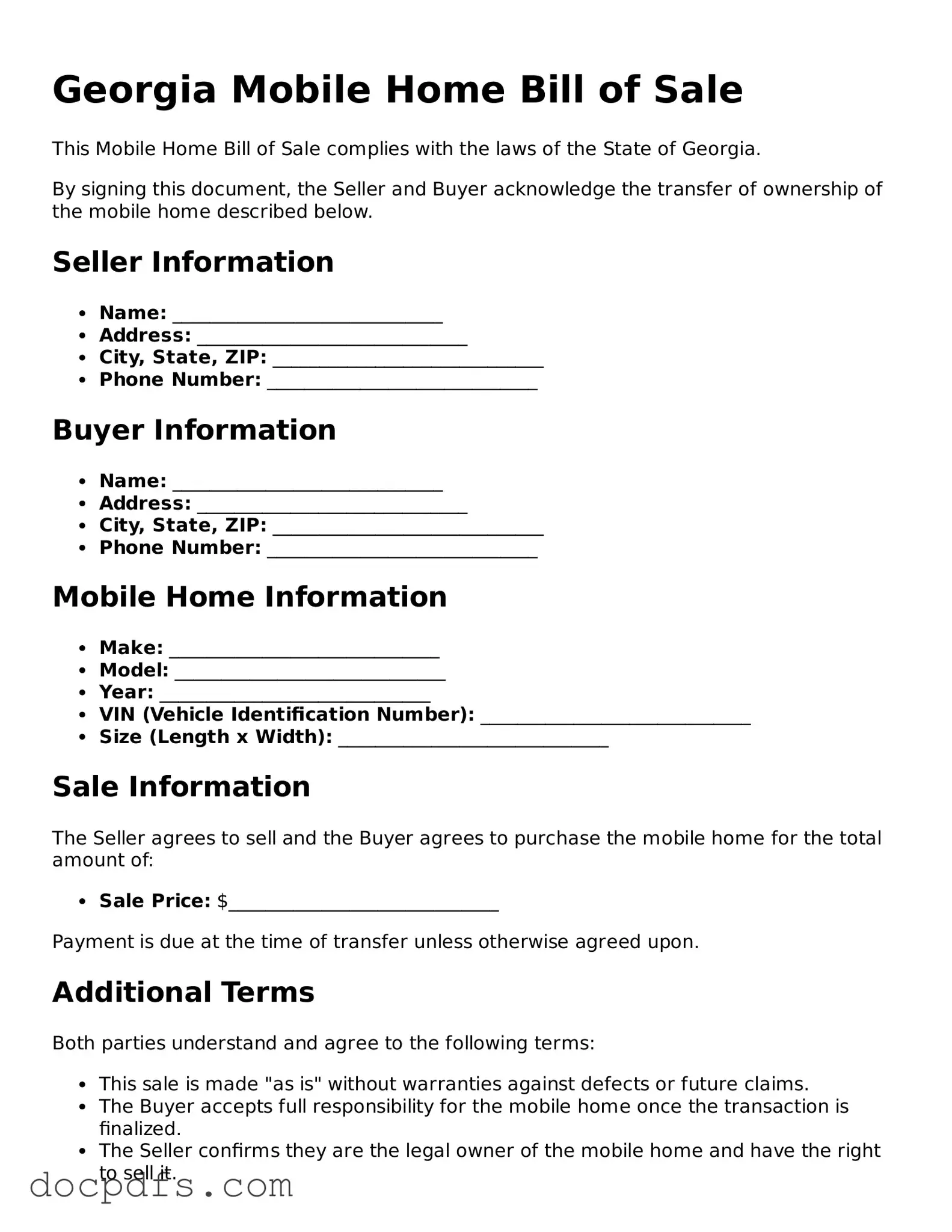What is a Georgia Mobile Home Bill of Sale?
A Georgia Mobile Home Bill of Sale is a legal document that facilitates the transfer of ownership of a mobile home from one party to another. This form serves as proof of the transaction and outlines important details about the mobile home, including its make, model, and identification numbers. It is essential for both the buyer and seller to have this document to ensure a clear record of the sale.
Why is a Bill of Sale necessary for a mobile home transaction?
The Bill of Sale is crucial for several reasons:
-
It provides legal protection for both parties involved in the transaction.
-
It serves as proof of ownership, which is important for registration and titling purposes.
-
It helps to clarify the terms of the sale, including any warranties or conditions agreed upon.
A comprehensive Bill of Sale should include the following information:
-
The names and addresses of both the buyer and seller.
-
A detailed description of the mobile home, including its make, model, year, and Vehicle Identification Number (VIN).
-
The sale price and payment method.
-
The date of the sale.
-
Any warranties or conditions related to the sale.
Is the Bill of Sale required to register a mobile home in Georgia?
Yes, the Bill of Sale is typically required to register a mobile home in Georgia. When you go to the county tax office to register the mobile home, you will need to present the Bill of Sale along with other necessary documents, such as proof of payment and identification. This ensures that the mobile home is properly registered under the new owner's name.
Can I create my own Bill of Sale, or should I use a template?
You can create your own Bill of Sale, but it is advisable to use a template to ensure that all necessary information is included and formatted correctly. Templates can help guide you through the process and reduce the risk of omitting important details. There are many resources available online that offer free or low-cost templates specifically for mobile home transactions in Georgia.
Do I need to have the Bill of Sale notarized?
While notarization is not a requirement for a Bill of Sale in Georgia, it is often recommended. Having the document notarized adds an extra layer of legitimacy and can help prevent disputes in the future. If you choose to have it notarized, both the buyer and seller should be present to sign the document in front of the notary.
What happens if there are issues with the Bill of Sale after the sale?
If issues arise after the sale, such as disputes over the terms or claims of fraud, the Bill of Sale can serve as a key piece of evidence in resolving the matter. It is important to keep a copy of the signed document in a safe place. If necessary, consult with a legal professional to understand your rights and options based on the specifics of the situation.
Can I cancel a mobile home sale after signing the Bill of Sale?
Once the Bill of Sale is signed, it generally represents a binding agreement. However, there may be specific circumstances under which a sale can be canceled, such as mutual agreement between the buyer and seller or if the sale was based on fraudulent information. It is advisable to seek legal counsel if you are considering canceling a sale to understand the implications and processes involved.

